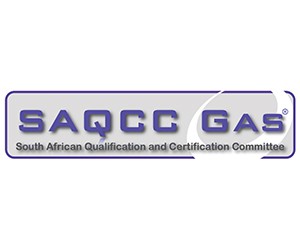Certain Industries may be male-dominated for a variety of reasons, such as cultural norms, interests, and history. History, in particular, plays a huge role in gender integration in a particular industry or career stream. Very often, jobs that have favoured a particular gender drag for decades and decades before the “norm” is broken.
This has proved to be the case with the South African Gas industry. The mandated registry body SAQCC Gas (South African Qualifications and Certification Committee) reports that registered female Gas Practitioners make up less than 2% of Gas Practitioners in South Africa.
The month of August has been dubbed Women’s Month to commemorate what women have achieved since 9 August 1956, when more than 20 000 women marched to the Union Buildings in protest against the unjust pass laws imposed on women in South Africa. Undoubtedly, women are playing a larger role in various industries; however, industries such as the Gas Industry are fields that could use more gender integration.
Nevertheless, there are women who have not let the cultural norms stop them from making it in the Gas Industry, these women are a force to be reckoned with, a great example for young women who are yet to enter the workspace.
Manale Sepobe is a fearless young woman who is making an entry. She is on an apprenticeship program to become a qualified refrigeration and Air-conditioning Artisan / Technician. Manale studied Heavy Current, in the interim, the Air Conditioning industry caught her eye. She quickly spotted the gender dominance, and this was an attractive challenge to Manale!
“I had a pep talk with myself, and said; it’s not going to be easy at first, but I will learn to handle every challenge thrown at me.” Manale
Samantha Ayres is registered as a designer, she is a designer in the refrigeration industry. She received a bursary with Sasol to study mechanical engineering when she was in Grade 12. Maths and science have always been her favourite subjects. Samantha then worked at Sasol for 3 years before moving to the refrigeration industry.
She states: Proving yourself is always difficult, but once you do, you will have the respect of your colleagues. Also, you can’t be too sensitive and have to take things with a pinch of salt.
Sebenzile Ngobese is also amongst the few women in the industry, she is a registered field Technician conducting maintenance on Afrox Installations. Sebenzile is qualified in commercial LPGas, Natural Gas Thermo processing, and industrial compressed medical gas. She has been in the industry for 8 years! Despite her skills and experience, Sebenzile says she still comes across customers who will not let her work on their installation just because she is a woman.
“I occasionally have to explain that I am able and capable of fixing the installation problem. Having to prove you are able and capable and licensed all time can be frustrating!” Sebenzile
Milana Giles is a registered Gas Practitioner in LPGas: at Domestic, Commercial, Industrial levels as well as Natural Gas: Domestic, Commercial and Natural Gas & LPG Thermo processing. Milana is also directly involved in procurement management, and international orders and payments. She is also part of Working Groups at SABS for the reviewing of standards and also a member of the technical committee at the LPGSASA. Milana has been in the gas industry since 2006!
“The Gas Industry, in my opinion, is a very fulfilling career in that you can take a project from plan to execution and see the fruits of your labour in a high power energy gas flame.” Milana
Despite her skill and experience, Milana says; we still encounter the old school mentality of men wanting to work with men only and that is predominantly on the commercial, industrial and thermo processing side.
Over the years, gender stereotypes have instilled in society that there is only a certain type of work that women can successfully do. Industries are evolving, gender balance across industries is a necessity. Toleration for sexism has significantly reduced. Employers in male-dominated industries, such as the Gas Industry, are expected to revolutionise with the times, give the African woman a chance!










